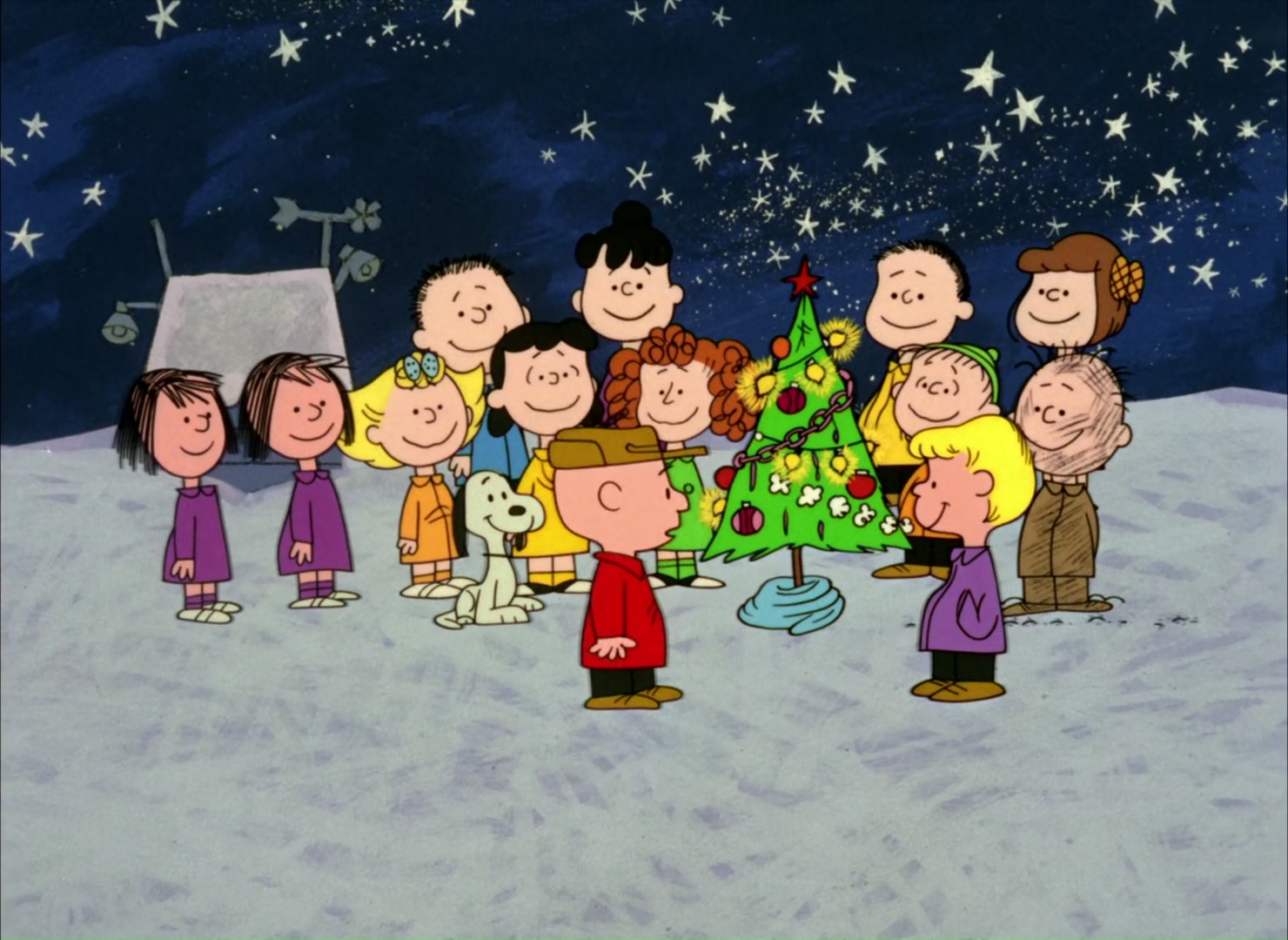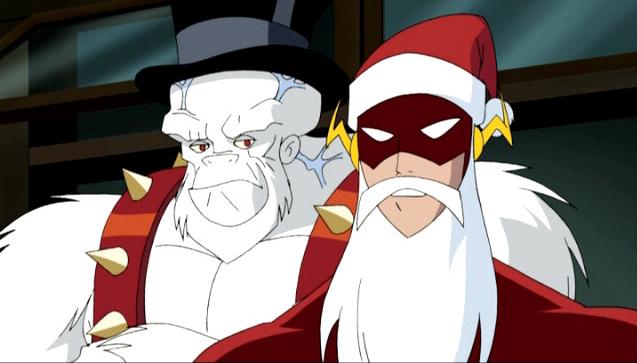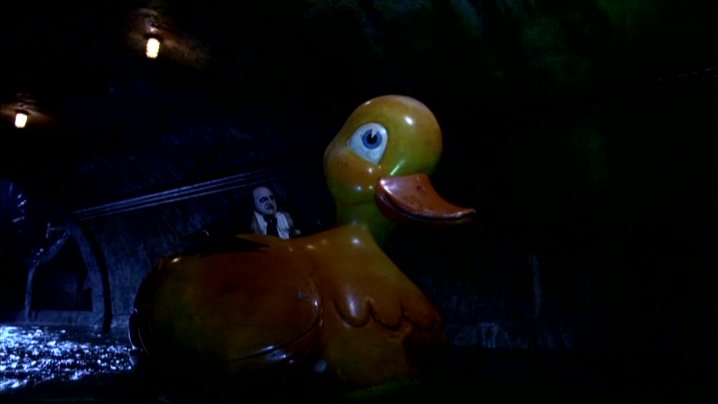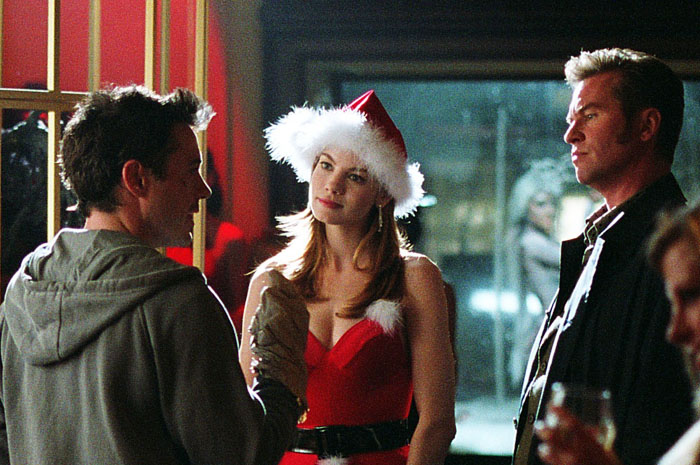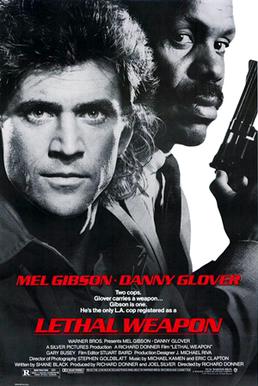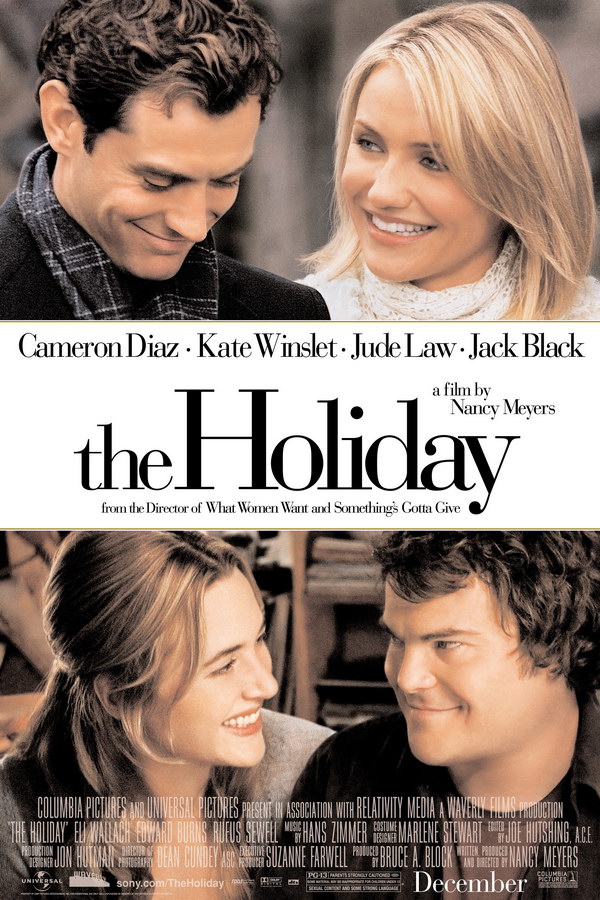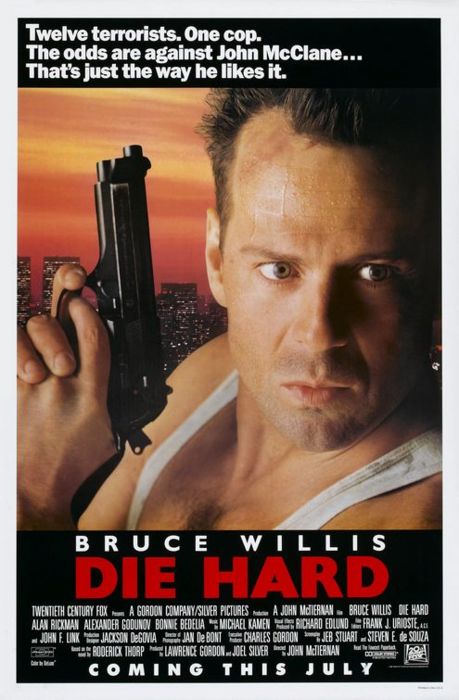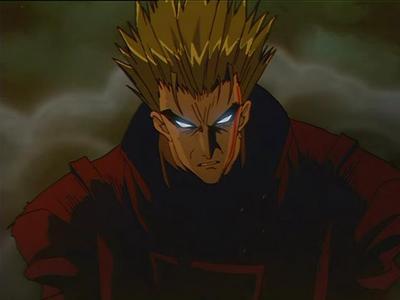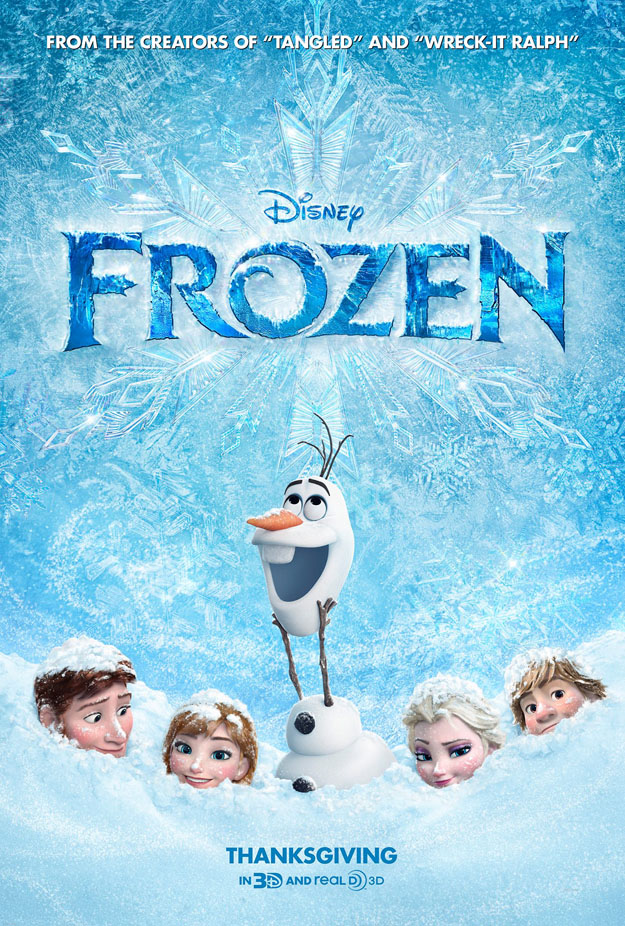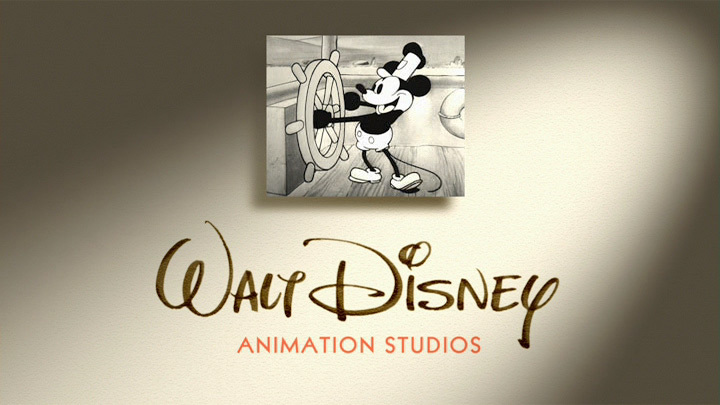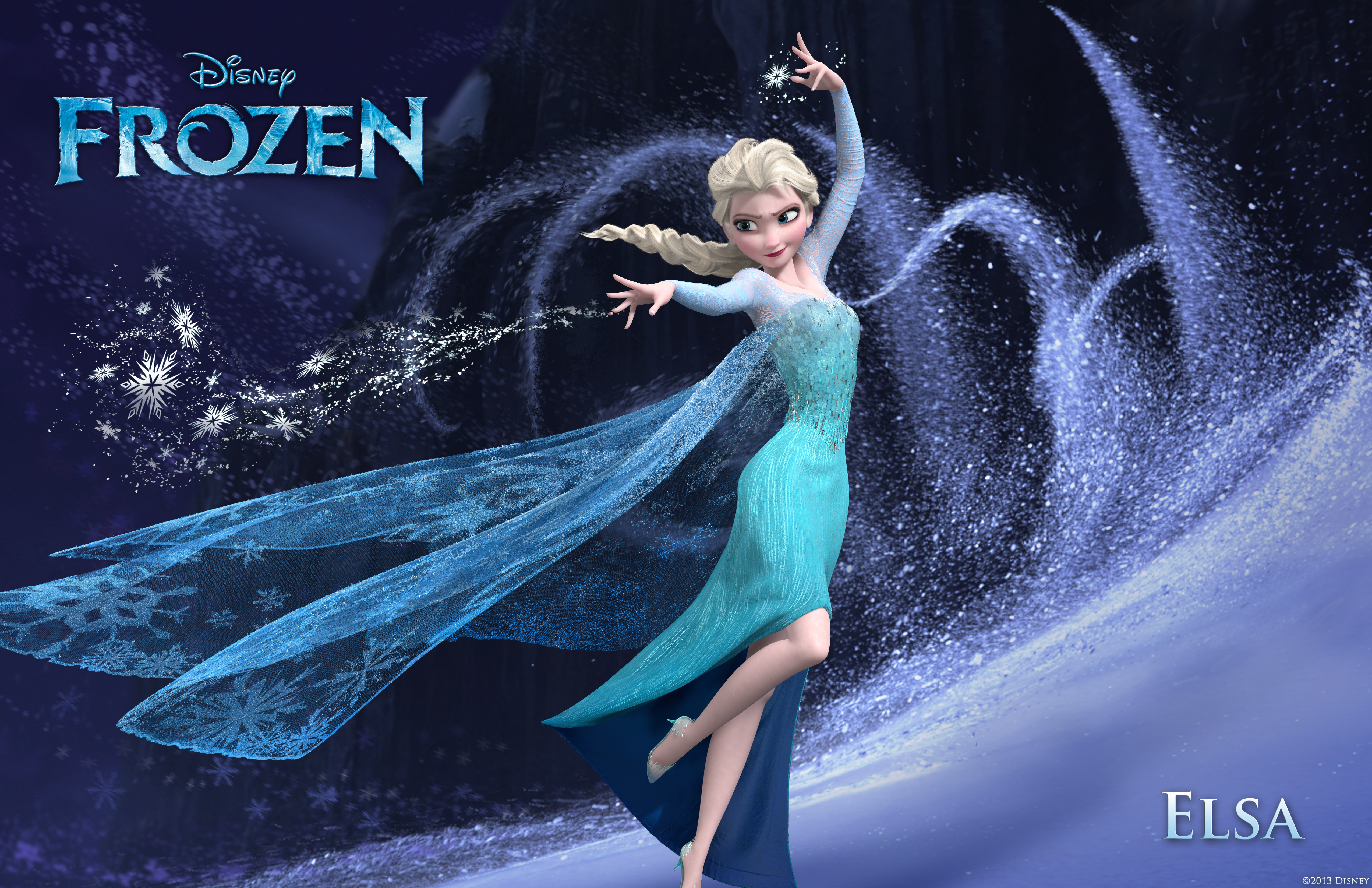The Hobbit: The Desolation of Smaug Review: Second Verse, (More or Less) Same as the First
By Andrew Briad
Directed by Peter JacksonStarring: Martin Freeman, Ian McKellen, Richard Armitage, Benedict Cumberbatch, Lee Pace, Evangeline Lily, Luke Evans, Orlando Bloom
Release Date: December 13, 2013
Presented in 2D, 3D, High Frame Rate 3D, and IMAX 3D

The Hobbit: An Unexpected Journey greeted us last December to very high, albeit in retrospect rather unreasonable, expectations. It was director Peter Jackson returning to the Tolkien lore that made him a household name in the film world, directing the first of an epic multi-movie adaptation of a book that in and of itself was a revered literary classic, regardless of its Lord of the Rings connections. The first full trailer came out an entire year before its release, and spun a huge frenzy of hype among many fans. While many were relatively pleased with it, the overall response to An Unexpected Journey would be best described as lukewarm- no one really seemed to hate it or anything, but a fair number of people were left feeling disappointed.
While some of these reasons weren't exactly invalid (that it was too long, that the pacing was fairly slow, that The Hobbit didn't need to be made into three movies), some of these complaints do seem somewhat misguided by expectations. Namely, is it a problem that the film isn't enough like The Lord of the Rings trilogy, that it's smaller in scale as a story, that it's often sillier and more comic? To these complaints I respond with a resounding no. While the connections to Lord of the Rings are certainly there (and the filmmakers seem intent on cramming in a bunch more of them), The Hobbit is not LotR. This is namely due to the nature of the story itself, a fairly simple (for Tolkien) fantasy adventure written to appeal to children (whereas LotR was written with an older audience in mind). As a result the tone of The Hobbit also differs in some ways. The visual aesthetic of the films, shot digitally with a very clean, bright appearance (coupled with a deluge of first-rate CG effects from Weta Digital) is fitting for a lighter, less complex adventure tale (simply replicating how the darker, grittier Rings films looked would have been a mistake- though a few more practical effects wouldn't have hurt). Whereas the somewhat more cartoonish and over-the-top physics of many action scenes would feel out of place in much of the Rings trilogy, they play better in The Hobbit's more generally jovial, adventurous context of old-school fantasy. The stakes and drama are certainly there, but the fun lighthearted elements get to be more pronounced. The early scenes of An Unexpected Journey should have tipped enough people off to this right away (Bilbo's first conversation with Gandalf, the party with the dwarves, the songs), and while things get a bit more serious in our second installment, The Desolation of Smaug, that more lighthearted sense of fantasy fun still largely remains.
 |
| "No, no no! Singing elves are that side. This side is the dancing elves!" |
So, where were we? Resuming right where An Unexpected Journey left off, Desolation of Smaug finds Bilbo Baggins (Martin Freeman) continuing his quest with Thorin Oakenshield (Richard Armitage) and his band of dwarves to retrieve the Arkenstone from the Lonely Mountain, guarded by the greedy, powerful dragon Smaug. With the Arkenstone Thorin will reclaim his birthright as king and unite the Dwarves, which the orc party of Azog the Defiler (yes that's his real title) is intent on stopping. In this installment Bilbo and the dwarves encounter Giant Spiders, are held captive in the kingdom of the Wood Elves led by Tharanduil (Lee Pace), make a daring escape through barrels down a river (in a particularly fun action sequence replete with 3D arrows, decapitated orcs, and weirdly-inserted handheld camera shots), and encounter Bard the Bowman (Luke Evans), who smuggles them into his home of Laketown. Thorin is perhaps somewhat too eager to reclaim his homeland, as his quest for redemption begins to consume him. Meanwhile Bard debates the destruction that his actions may bring in their wake, concerned for the safety of the citizens of the nearby Laketown. This all leads to the dwarves finally reaching the Lonely Mountain, where Bilbo must steal the Arkenstone from the dreaded Smaug...
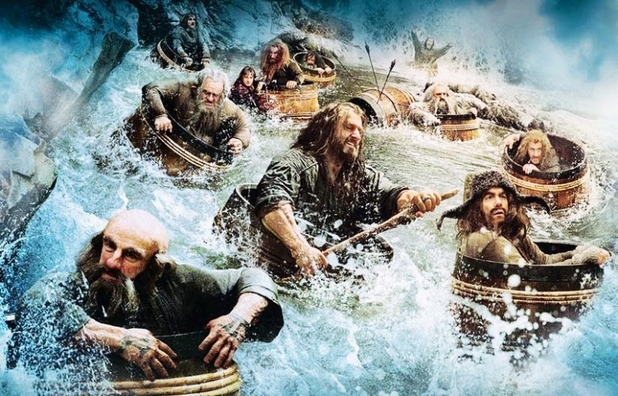 |
| The barrel escape is one of several great action sequences in DoS (and a shoo-in for which part of the movie gets its own theme park ride). |
Like the first Hobbit film, Desolation of Smaug expands on the story with materiel from Tolkien's appendices, as well as completely new content just for the film. While all this expansion worked well enough for An Unexpected Journey, it proves a decidedly more mixed bag here. New material with the elves proves quite a bit of fun, reintroducing Legolas (Orlando Bloom) as a rather dickish elf prince with a lot of arrogance to shed off, as well as a crush on new character Tauriel (Evangeline Lilly), who despite her friendship does not seem to share these feelings. Her eye does fall towards the dwarf Kili (Aidan Turner), providing probably the biggest surprise in a series mostly lacking in them- a romantic subplot that, while not really necessary to the story, proves to be one of the more engaging parts of the movie. A dwarf/elf romance- who knew, right? (and yes, the shipper community is already having a field day with this one)
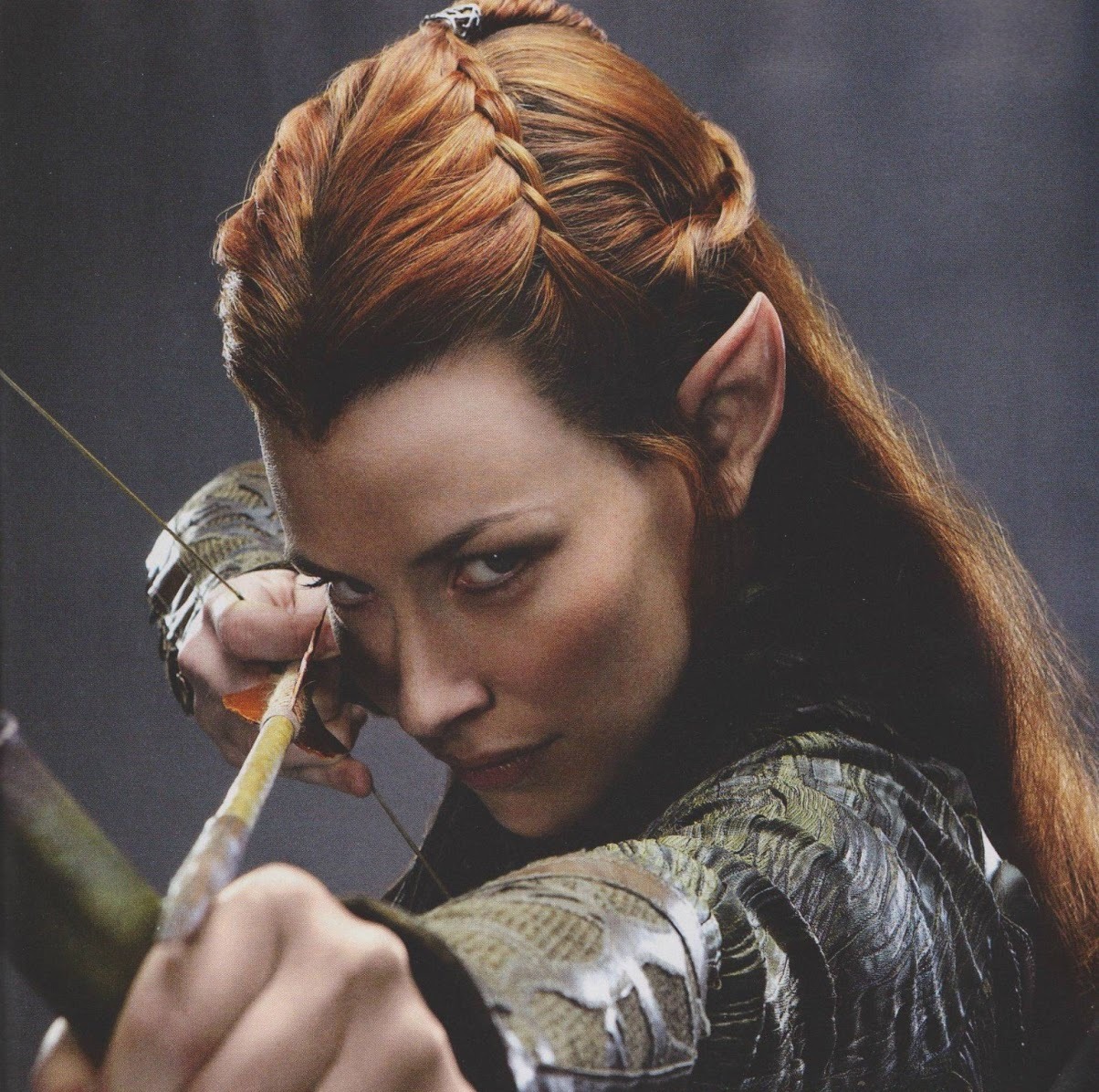 |
| Tauriel proves a fun addition to the story, plus more ass-kicking women is always a good thing. |
Meanwhile, anytime the film cuts to Gandalf's (Ian McKellen) subplot involving the Necromancer it seems to grind the movie's pacing to a screeching halt. In the original book this subplot was entirely absent, merely existing as an excuse for Gandalf to leave the action midway through the book (and thus give all the later Smaug action some actual stakes now that there isn't an all-powerful wizard fighting with them). The film pulls from the Middle-Earth appendices, actually showing this action as its own subplot, showing Sauron's growing presence. Unnecessary tie-ins to the original trilogy notwithstanding, this sounds like it has promise to expand on the story. Onscreen however it mostly amounts to Gandalf walking around the same ruins for a while, having a surprisingly unmemorable fight scene, and then seeing Sauron's eye before the movie decides to save the rest for the next installment. All it really ends up accomplishing is padding out the running time some more, distracting us from the main storyline with Bilbo and the dwarves in Laketown, where all the important events are actually happening. Your mileage may vary, but there's a reason why Tolkien left that stuff for the appendices.
 |
| Again, it's mostly just more wandering around like this. |
But any faults like these are (mostly) offset by the film's stronger elements, and like An Unexpected Journey before it, there's one particular standout sequence that makes the film a must-see. In the previous film it was Biblo and Gollum's game of riddles, a much-welcome return appearance from Andy Serkis that feels not just remarkably faithful to the text (as if you were seeing it literally come to life before your eyes), but also best exemplifies that The Hobbit is its own story, with its own feel separate from Lord of the Rings. Unlike many moments where the films so far try to include connections and setup to the Rings trilogy, here is where The Hobbit just gets to be The Hobbit, a relatively simple and to-the-point fantasy adventure at its core.
If you somehow didn't guess already, the big standout sequence in Desolation of Smaug is Bilbo's introduction to our title dragon, played through motion capture by Freeman's Sherlock co-star Benedict Cumberbatch. Cumberbatch, who's had a big rise in fame throughout 2013 thanks to roles in Star Trek Into Darkness, 12 Years a Slave and his continuing run on BBC's Sherlock, absolutely nails the character even better than one could hope. His powerful, prideful voice coupled with the spectacular CG effects truly bring Smaug to life, the film making the most of his entrance with a deliciously suspenseful sneak through the dragon's mountains of gold. From there it captures much the same magic as the Gollum sequence from An Unexpected Journey, the classic story bursting from the pages as Jackson gets to do what he (and legions of Tolkien fans) really wanted to see from these movies. While much of the time spent watching Desolation of Smaug was a good deal of fun, this is where I found myself just grinning like an idiot throughout- all this buildup for nearly two movies now, and it delivers in spades. If you need just one reason to go see DoS, this is most definitely it.
 |
| Holmes and Watson, together again... er, sort of. |
The reveal of Smaug leads into an exciting action sequence to close out the film, one that leads into an even bigger action sequence... that we don't get to see, because that's where the film cuts off at. I've mentioned cliffhangers briefly before on this blog, and in the rising trend of franchises and multi-part book adaptations they've become something that we'll have to learn to accept in the current movie age. I will make it perfectly clear right now that cliffhangers are not inherently a bad thing. In fact, there are many movies that have handled them effectively, and allowed the film to stand up fairly well on its own.
Having said that, the cliffhanger ending to Desolation of Smaug cuts out at without a doubt the most frustrating point possible. It leaves the film feeling like you just watched 2 1/2 hours of setup for another 2 1/2 hour movie due next December. Absolutely nothing ends up getting resolved (even the smaller-scale subplots), and the audience is left teased that they'll have to shell out money again next year for any of the actual payoff. At least when Catching Fire did its cliffhanger ending last month, it was just doing exactly what the book did, closing out the current story while leading into Mockingjay's big shift in focus (plus it had a great final plot twist to close out on). Hell, even the middle chapter of The Lord of the Rings trilogy managed to find a good endpoint, one that provided a satisfying feeling and capped off many plot elements for the time being. As a result, it felt more capable of standing up both as a film on its own terms and as part of a bigger trilogy. Just because you're the middle film in a series doesn't mean you can't find a solid end point to lead into your next movie, or even find a way for the film to stand up on its own. Considering how the first Hobbit film did find this kind of satisfying cutoff point, it makes the frustration with Smaug's shameless cliffhanger more palpable.
 |
| "What have we done?" What indeed, Bilbo. |
Whew, sorry about that, I didn't mean to rant so long. I should clarify, before you get the wrong idea now: The Hobbit: The Desolation of Smaug is a very good movie. Definitely worth watching, especially if you're a fan of Jackson's Tolkien movies so far (though that should really go without saying). However, it's also the definition of a middle chapter: it provides all the setup, but by design lacks any true payoff. While it improves in some respects over An Unexpected Journey, it also falls greater victim to a few of that movie's faults, leaving a film that levels out to being more or less on par. We'll just have to wait until next year's There and Back Again to know for sure if all that promised payoff truly proves worth it. For now, I'm keeping myself busy imagining a spinoff where Smaug and Bilbo team up to solve mysteries across Middle-Earth.
Now that deserves three movies.
| You know you want it to happen. |
Final Score: 8/10
Pros:
+ Many great action sequences, aided by first-rate visual effects
+ Great cast, as always (both series veterans and newcomers)
+ Retains the sense of classical fantasy established in the first Hobbit
+Benedict Cumberbatch as Smaug. 'Nuff said.
+Some of the new additions (Tauriel and Legolas) turn out quite well...
Cons:
- ...While others just seem to drag things down (Gandalf's whole Necromancer sidequest)
- The story struggles to keep a steady, consistent pace
- A few story beats fall flat in a feature film context
- A frustrating cliffhanger ending that keeps the film firmly rooted in "middle chapter" territory
